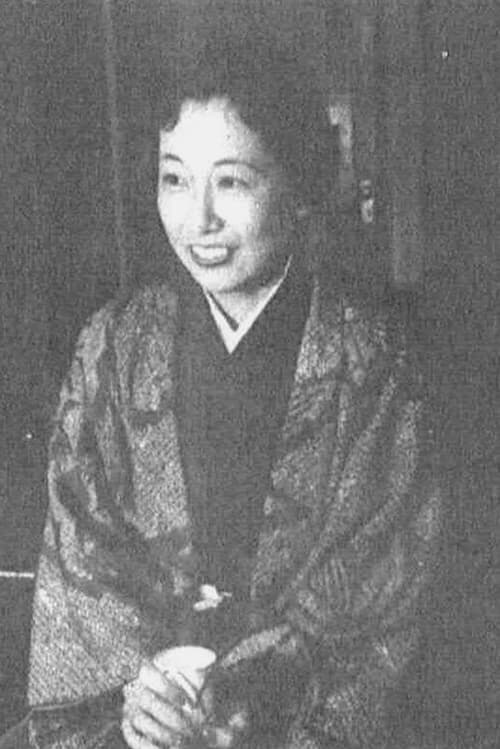
Natto Wada
Nascimento : 1920-09-13, Himeji, Hyōgo Prefecture, Japan
Morte : 1983-02-18
História
Natto Wada (和田 夏十, Wada Natto, 13 September 1920 – 18 February 1983), also known as Natsuto Wada, was a Japanese script writer and film columnist.
Wada graduated with an English degree from Tokyo Women's College in 1946. She started her career at the Fujimoto Cinema Production company, where she met her husband, Kon Ichikawa, a filmmaker who promoted her script work to colleagues and collaborated with her on several films. She began writing, or co-writing, scripts in 1951, and continued until 1965. Wada's scripts included the 1953 film Puu-san, a satirical comedy based on the manga of Yokoyama Taizo; the 1956 film Shokei no Heya, based on a novel by Ishihara Shintaro. That year, Wada also wrote Nihonbashi, based on a novel by Izumi Kyoka, which documented the rivalry of two geisha in a male-dominated culture. Kuroi Junin no Onna (Ten Dark Women) was a 1961 film that satirized an egotistical male's reliance on his wife to stay out of trouble. Also that year, Wada wrote Hakai (The Broken Commandment) a film adaptation of Shimazaki Toson's eponymous 1906 novel, which examined the life of a social outcast. Wada's adaptation was notable for strengthening the role of the female protagonist. Other film scripts by Wada or with collaborators include Biruma no Tategoto (Harp of Burma, 1956), based on the eponymous 1946 novel by Takayama Michio; Enjō (Conflagration, 1959) based on Mishima Yukio's 1956 novel, The Temple of the Golden Pavilion. Wada was also known for her work as an advice columnist during the 1960s. Her column, "Personal Life Consultation," ran in the Asahi Shimbun.

Herself
The life of iconic Japanese director Kon Ichikawa.

Writer
Based on the folk tales "Repayment from a crane". One snowy night a beautiful woman named Tsuru (Crane) visits poor peasant Taiju and says she will become his wife...
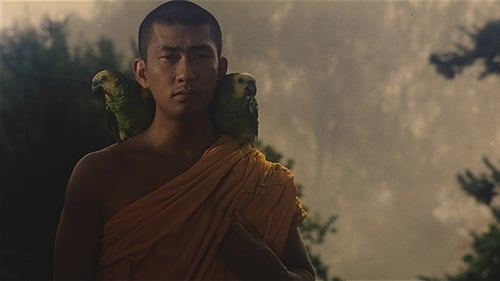
Screenplay
In the War's closing days, when a conscience-driven Japanese soldier fails to get his countrymen to surrender to overwhelming force, he adopts the lifestyle of a Buddhist monk.
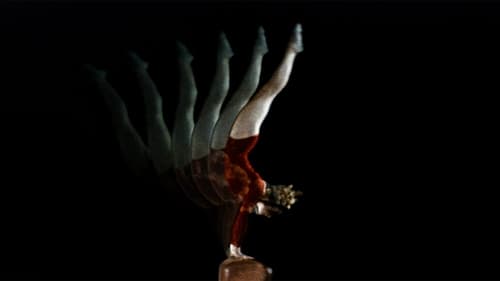
Writer
As câmeras de Ichikawa seguem os Jogos Olímpicos de Verão 1964, da abertura à cerimônia de encerramento. Às vezes, ele concentra-se em espectadores, as vezes em atletas que passam em um borrão, às vezes ele isola um concorrente, outras vezes é um close up de músculos como um martelo é lançado ou uma barra levantada, ou assistir a uma corrida do início ao fim. Vemos vindo de trás ganha em 800 metros das mulheres e 10.000 metros dos homens. Nós seguimos um atleta do Chade desde a chegada às refeições, treinamento, competição e perda. Todo, o filme celebra a nobreza dos atletas empurrando-se para o limite, independentemente da vitória.

Writer
Kenichi Horie is determined to challenge his family, the law and the nature crossing the Pacific to America in a small sailboat. Despite his careful planning many unforeseen events will test his determination.
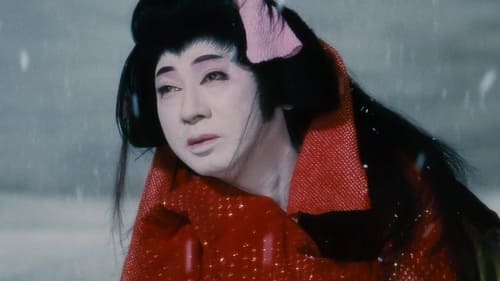
Scenario Writer
Em uma excursão com seu grupo de teatro kabuku, Yukinojo, ator principal da trupe, acaba cruzando com os três homens que levaram seus pais ao suicídio, 20 anos antes. Yukinojo então trama sua vingança, primeiro seduzindo a filha de um deles e depois os levando à ruína.
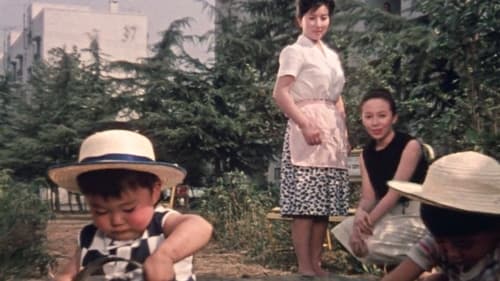
Costume Consultant
The days leading up to a toddler's second birthday are seen alternately from the child's point of view as well as that of his parents.

Writer
The days leading up to a toddler's second birthday are seen alternately from the child's point of view as well as that of his parents.

Screenplay
Ushimatsu's father told him never to reveal his lower-caste heritage; years later, he now contemplates confiding in an activist fighting against such discrimination.
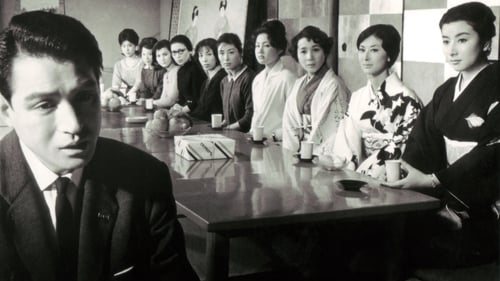
Screenplay
Kaze is a philandering TV producer. His wife and nine of his mistresses conspire to kill him. However each woman would rather keep him alive, as long as she was the only woman in his life.

Writer
Detective Katahachi meets a young and beautiful pickpocket and doesn’t arrest her because she was not in the act. Instead, he listens to the story about her parents who killed himself and died for overwork to feel sorry about her.

Screenplay
Kikuji is the scion of an Osaka merchant family whose traditional power is matrilineal. Instructed by his overbearing mother and grandmother to give them an heiress for the family business, he stands by helplessly as his wife is thrown out of the house for producing a son. Driven to a life of dissipation - his mistresses also fail to produce daughters - in the end he is just too tired to care.
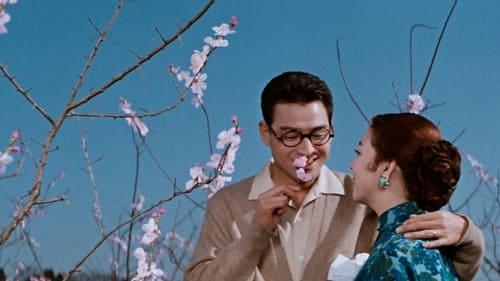
Writer
Pu Zhe , the younger brother of the Emperor of Manchukuo, Pu Wen, marries Ryuko the daughter of a long-established aristocratic family - all in the interest of the Japanese rulers , which legitimizes the relationship between Japan and its Chinese puppet state. To the surprise of all , a deep love between Pu Zhe and Ryuko develops. It is put to the test when Japan loses the war, Manchukuo is dissolved and the imperial court must flee. The lovers now have to separate: Pu Zhe tries to escape to Japan with his brother , while Ryuko flees with her daughter Eisei over the country. A film on the relationship between Pujie (1907-94) , brother of the " last emperor " Puyi and his second wife, Marquise Hiro Saga (1914-87).
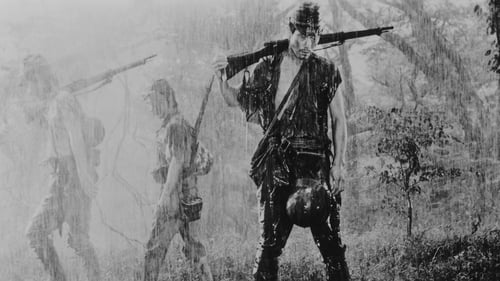
Writer
Filipinas, 1945. O Exército Imperial Japones foi reduzido a um bando de maltrapilhos escondidos nas florestas. Entre eles está o soldado Tamura. A situação vai de ruim a péssima e face as condições extremas que os homens enfrentam, alguns enlouquecem e outros sobrevivem através do assassínio e canibalismo. Em meio a isso tudo, o soldado Tamura tenta sobreviver sem abandonar os seus princípios.
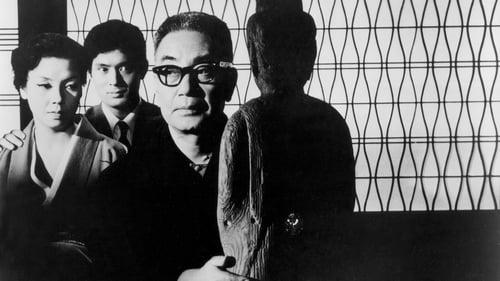
Writer
A middle-aged husband of a younger woman finds her youth intimidating to the point that he cannot become aroused. His solution involves the introduction of his daughter's lover to his wife.

Writer
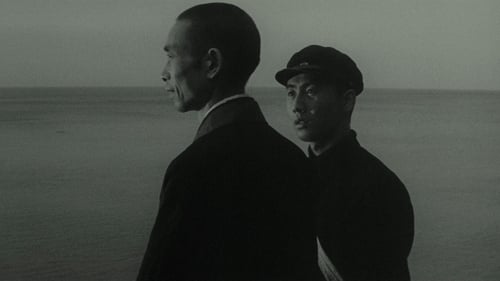
Writer
Learning of his family's collapse, acolyte Goichi, sent to study silently at the Temple of the Golden Pavilion, must endure acute psychological distress.

Writer
A female reporter is fired for writing about police corruption; to make money while hiding from the press, she posts a bounty upon herself.

Writer
Tamio Moroi, a young university graduate, works at a large brewery where he is taught to do nothing but look busy. When his father goes insane, he is told to send money for medical research into the condition. This prompts him to pay his father a visit, leading to a series of mishaps that leaves him at the bottom of the heap in what he once expected to be a promising lifetime career.

Screenplay
Shimada is a student of U College. When the college's baseball team wins the day, he and his friend Ito drug two girls they met at the game.

Screenplay
Ichikawa's 1956 adaptation of Nihonbashi was the first to take the work of Kyoka Izumi— until then regarded as a writer of common tragic melodramas—and re-evaluate it as a tanbi-ha work of decadence, aestheticism, and intrigue. Ichikawa's film presents the tragic plot of the young geisha who is unable to enact her love for a man publicly in any way other than a histrionic story of torment, a heart-rending tale of lovers being crushed by fate. Instead, Ichikawa shows the contest of wills that transpires as two geisha, Oko and Kiyoha fight for the top spot in Nihonbashi, the pinnacle of the Tokyo geisha world. Nihonbashi is an elegant, if steely, exposition of manners. The young doctor, Shinzo Katsuragi, is the object of affection for both women, but appears to be more the choice reward for the plotting and thieving of these two early modern superwomen, than a lover they swoon over.

Screenplay
Fim da Segunda Guerra Mundial. O disciplinado pelotão do capitão Inouye sempre foi bastante musical. Presos pelos ingleses, eles descobrem que uma tropa de japoneses recusa a rendição e será massacrada pelos inimigos. Mizushima, tocador de arpa do grupo, sobe até uma montanha para tocar, na expectativa de convencer os compatriotas a entregarem-se e evitar o banho de sangue.

Screenplay

Writer
An ethical, young tax collector new to his area encounters increasingly absurd individuals and groups coping with their post-war woes.

Writer
Comedy about a 50-something movie director, his new bride, a classical dancer, and his adult son and daughter and their loves.

Screenplay

Writer
A math teacher loses his job while falling in love with a local girl.

Screenplay
An intellectual couple in a staid and tedious marriage are surprised when the wife’s niece, who has run away from home, turns up unexpectedly to stay with them. Their mundane lives are sent into disarray by the emotional and energetic Ako.

Screenplay
A screwball tale of a suspected “lady thief” and the detective who is on her trail, following her from Osaka to her home village, where she is going to hold a memorial service for her father. Of course, the detective falls in love with his prey.

Screenplay

Writer
Melodrama by Kon Ichikawa

Writer
War film by Kon Ichikawa

Writer
Romantic melodrama

Writer

Writer

Writer
A love triangle among a girl, her poor boyfriend, and a rich company president.













